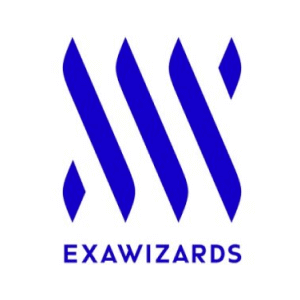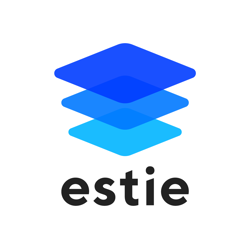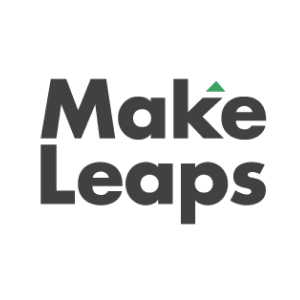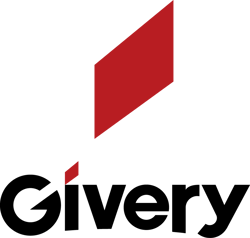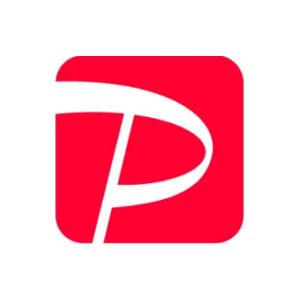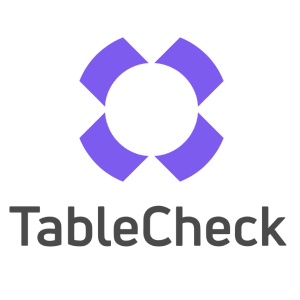Updated September 18, 2025
Interview Tips to Land Your Dream Job In Japan
I used to dread job interviews.
I was nervous. Didn't know what to say. Afterwards I'd feel like I failed to express any of the things I wanted to.
So when I first came to Japan, I faced a lot of rejection. Seriously, name a popular tech company in Japan from that time period. Chances are I've been rejected by them.
But eventually I started to improve. I went on to work as an engineer at some great companies here, and even became a hiring manager myself.
And, I realized there are a few simple things you can do to drastically improve your chances of passing a job interview, so I wanted to share my advice.
But I didn't just want to share my own anecdotal experience, so I reached out to 5 of our favorite tech companies in Japan and asked them what candidates can do to ace their interviews.
They provided some really great insights, and I'm thrilled to share them with you below!
Contents
Here's the breakdown of what I'll cover:
- Japan Dev Overall Interview Guide
- Wovn Technologies Interview Tips
- Drivemode Interview Tips
- Zeals Interview Tips
- Toposware Interview Tips
- Wealthpark Interview Tips
- Tying it all together
- Finding your narrative
- A few examples
- A quick note on technical interviews
I'll share the best advice from the above tech companies in Japan, with a bit of my own commentary thrown in.
And at the end, I’ll share my own framework that I used to think about my interviews. I'll also share a few tips on technical interviews, aimed specifically at tech companies in Japan.
Japan Dev Overall Interview Guide
I recently made a video going more in-depth about my top interviewing tips for tech companies in Japan. The talk is geared towards coding bootcamp graduates, but the tips are universal for any engineer preparing for an upcoming interview.
Check out the video here!
Alright. Let's see what we can learn from some of Japan's hottest companies, starting with web translation start-up Wovn Technologies!
Wovn Technologies Interview Tips
First off, this advice right here:
"Candidates should take the time to understand our business and products."
The wording varied, but this basic idea of understanding the company is the single most common answer we heard from companies.
And I can confirm from my own experiences as an engineering manager: this is so important.
You'd be amazed how many people don't take the time to properly research a company before interviewing. Which means this is a chance to get ahead of the pack. Doing a little more research than the other applicants goes a long way.
And Dat's second point about asking great questions? Also great advice, and this becomes a lot easier when you do thorough research about the company. You can just write down questions that come up during this research.
By the way, they're actively hiring so check out Wovn's profile on Japan Dev to see their open positions.
Next up, we have João from Drivemode!
Drivemode Interview Tips
As a manager, I wanted to hire people I was sure could join the team and start contributing immediately. Showing your thought process and problem solving skills is a great way to prove this to your interviewer.
So I agree with João here. Focusing on the "why" can help alleviate the interviewer's concerns and help you get to the next stage.
Want to work with João? Take a look at Drivemode's page on Japan Dev to see all their open positions.
Next up let's hear from Aaron, team lead at Zeals!
Zeals Interview Tips
So Aaron's echoing the importance of understanding the company, with some great detail on how to think about this. He also mentions the need to understand the position too. Absolutely true!
Being willing to negotiate is an interesting point.
I agree it's important to be aware of where you stand in relation to the company's expectations. Are you at the bottom of their expected skill range? Then think of ways to show your passion or some other positive aspect that will help bridge that gap.
Are you crushing the interviews so far? Maybe you can afford to be a little more aggressive in your negotiations.
Hit up Zeals's page on Japan Dev to apply now if the above resonates with you.
Next up, we've got some advice from Sébastien of Toposware!
Toposware Interview Tips
Yet another vote for researching the company to really understand it.
I also agree with the point about cultural fit: hiring someone who doesn't fit in with the rest of the team can be disastrous. In fact it can be worse than hiring no one at all. And hiring managers are acutely aware of this danger.
So when I interviewed candidates I always wanted to feel certain that someone would be a fit culturally before giving the green light.
Also:
"Nothing is easier for an interviewer than understanding you're promoting a different self rather than showing your true passion."
This is sage advice right here. Misrepresenting yourself to try and impress a company never works. Instead, you should find your common ground with the company and focus on that.
Next up, we have some insights from Takahiro, VP of Engineering at Wealthpark!
Wealthpark Interview Tips
This is similar to the understand the company advice that keeps coming up, but I like how Takahiro ties it in with what the applicant is looking for.
This is super similar to my own framework for thinking about interviews – I'll expand on this below.
Check out WealthPark's open positions on Japan Dev to give this advice a try!
Tying it all together
I'm amazed at how similar the advice from these companies is. Clearly, there are specific areas where a large majority of candidates are falling short.
And it sounds like the single biggest issue companies see from candidates is not understanding the company or position well enough.
Pretty much every company cares about this, so it's a good place to start if you want to improve your interview success rate.
I know researching companies takes time, but it's so important.
Another point that came up a lot is the importance of communicating clearly (and focusing on the "why" behind what you're saying).
Be sure to structure your answers logically and keep them concise. And during technical discussions, think about the context and ensure that the interviewer is following along with what you're saying (it's easy to lose them when talking about something you're knowledge about).
It's also important to ask good questions (again, showing you understand the company/position) and show you're a good cultural fit.
Alright. So how should you actually prepare for interviews to ensure that you can do all of this?
Everyone's got their own process. But here's my advice: Find your narrative.
Finding your narrative
Before an interview, most candidates will do some cursory research about the company.
They'll make sure they know what the company does. And they'll memorize some facts they can bring up in the interview like how they recently "raised $50M in venture funding" or "hit 10 million downloads" in the app store.
In fact, this is what I used to do. That is, until I realized it was totally ineffective.
Because it turns out, that's not what people in the actual company talk about day-to-day – or care about. Which means it's not how you impress someone in an interview.
Semi-random facts you've memorized are hard to work into a conversation. They make you sound unnatural.
So now, instead of memorizing facts, I craft a narrative.
What does that mean?
It's simple. First I research the company – but I mean REALLY research the company. I read about their mission. Their culture. I try to figure out the things that make the company unique. The things that were key in the company's success.
In other words, the things that actually matter.
Once you've done that, the next step is to think about your own story so far. And ask yourself this question:
"Where does my story and the company's story intersect?"
I guarantee there's a compelling story in there somewhere. You just have to find out what it is, and then keep it in mind during the interview.
A few examples
Alright, the above is kind of abstract so let me get a little more concrete.
Let's say you're interested in working for a Japanese company that's currently expanding globally.
And you have unique experiences working abroad that make you a good fit for the job. That can be the crux of your story.
Paint a vivid picture of yourself acting as a bridge between their Japanese and global teams. A picture where you're key to their success. Fill it with details on exactly what you'll be able to do, and how it fits in with their goal of expanding their business abroad.
Here's one more example: you're applying to an education start-up. Their mission is to share knowledge around the globe. And you did a stint as an English teacher. There's your narrative.
You dedicated a year of your life to helping educate children, and it was a life-changing experience. So now that you're working as a developer, you want to use your skills to keep spreading knowledge, but at a larger scale. And you realized that this company is doing exactly that.
You're super impressed with what they've achieved already, and you believe in their product. You just know that it's going to keep growing. That it has the potential to provide millions of people around the world with access to education. And you'd love a chance to contribute to that vision.
You just need to paint a picture of the world where you join the company and help them succeed. And really drive it home with rich details from your own life combined with an understanding of the company's vision.
There's only one caveat. The story has to be real. I promise you, it won't work otherwise.
A quick note on technical interviews
There's been a great deal written on this topic in other places, so I didn't want to spend too much time on it.
But Japan's technical interviews are a little different than in other countries, so I wanted to at least give a brief overview.
Technical screenings vary based on company (and sometimes by team within a company), so the only 100% effective way to prepare is to ask people working at the company about their process.
Having said that, here's what you can typically expect based on company type.
Large foreign tech companies (Google, Amazon, Indeed...):
These companies usually do full Data Structure / Algorithms / System Design interviews. Usually with a phone screen followed by a 1-2 day on-site where you do a bunch of separate technical interviews, plus maybe some behavioral/cultural interviews.
The process for preparing for these interviews is a solved problem. There are literally thousands of blog posts, videos, courses, books and every other kind of media that are focused on this topic.
My personal advice? Drill Leetcode.
Also I would probably use JavaScript (or TypeScript) for this. It depends on the role, but pretty much any interviewer can understand JavaScript code and it's arguably the best bang-for-your-buck language right now.
Japan mega-venture companies (Mercari, PayPay, LINE...):
Usually these companies will have either an online coding challenge (via HackerRank, Codility, Karat or similar) and/or a take-home coding test.
See above for tips on the coding part as it's usually the same types of problems. The only advice I'd add is make sure you try out the actual platform you'll be using so you don't waste time trying to figure out the interface during the actual interview.
Small Japanese start-ups:
Some companies may have a relatively simple coding test/project, but others will skip the live coding test altogether and just determine your technical skills during the interview. So be prepared to have technical discussions about projects you've built, problems you've run into and solved, all that stuff.
Like I said though, you should really look into each company separately, as the processes are constantly changing (and can even be different team-to-team within a company). So there's no substitute for asking someone at the company, or at least a recruiter that works with the company.
Make sure you know the process before you walk in – if you fail don't let it be because you expected one type of interview, but ended up getting another.
And that's it for my interview tips.
It takes work. But I believe if you take the advice in this post to heart, pretty soon you'll have more job offers than you know what to do with.
A huge thanks to everyone who contributed to this post:
- Dat from Wovn Technologies
- João from Drivemode
- Aaron from Zeals
- Sebastien from Toposware
- Takahiro from WealthPark
These really are top-tier companies, so consider starting with them if you're serious about searching for a job in Japan!
If you liked this please do share it via the links above. Or you can tweet at me if you have thoughts.
Thanks for reading, and I'll see you in the next one!
–Eric
Get Job Alerts
Sign up for our newsletter to get hand-picked tech jobs in Japan – straight to your inbox.








